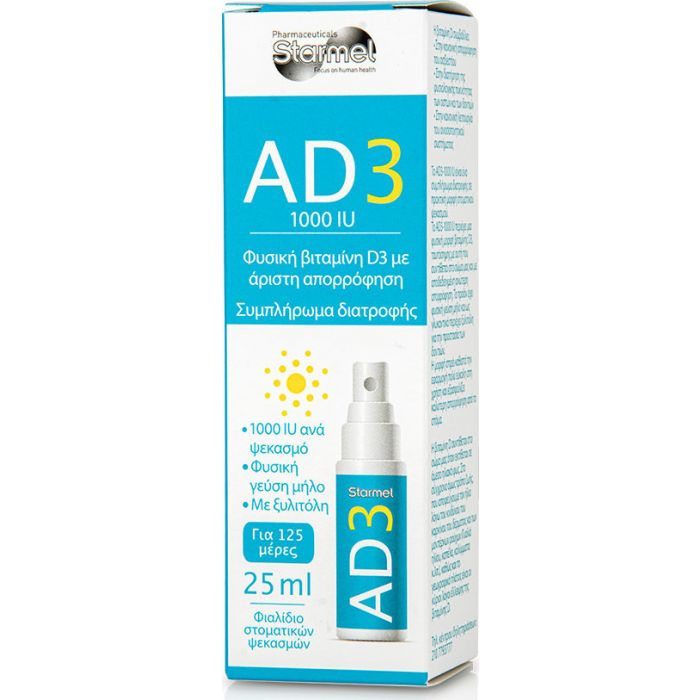Sunshine vitamin has a vital role in your health
Vitamin D is actually a hormone, since it is synthesized in our bodies when we are exposed to the sun. It is extremely important for normal and healthy development of bones and teeth, functioning of muscles, strong immune system and overall health. Due to the modern way of life (working long hours, covering our skin, using high UV factors, avoiding the sun because of the risk of skin cancer) and diet, not to mention long winter sunless periods, we normally don’t get an adequate amount of this very important vitamin.
Extensive research in the last decade has shown connection between vitamin D deficiency and numerous health problems and diseases. Vitamin D plays a crucial role in bone and teeth health since it helps to regulate optimal level and absorption of calcium in blood. Additionally, it supports muscle and immune system function, as it plays an important role in cell replication.
Benefits of vitamin D intake can lead to:
- Healthier bones and teeth
- Lower blood pressure
- Reduced risk of diabetes, heart attacks, rheumatoid arthritis or multiple sclerosis
- Better overall vitality
Recent studies have also shown that low levels of vitamin D may increase risk of type 1 diabetes, muscle & bone pain, and lead to more serious diseases like breast, colon, prostate, ovaries, lymphatic or oesophagus cancer.
The difference between D2 and D3
Vitamin D is fat-soluble and is often found it two forms – as vitamin D2 (ergocalciferol) and vitamin D3 (cholecalciferol). Vitamin D2 can be found in foods of plant origin, while vitamin D3 is present in foods of animal origin. Vitamin D3 is the one which is naturally formed in the human body, if the skin is directly exposed to the sun. American Society for Nutrition has shown that D2 and D3 are two different molecules and that D3 is superior.
How much vitamin D do you need?
| |
Vitamin D – Nutrient Reference Value (NRV) |
| Infants (0 – 12 months) |
10 mcg – 400 IU |
| Kids, teenagers and adults |
15 mcg – 600 IU |
| Adults (70+ years) |
20 mcg – 800 IU |
Source: EFSA, Medlineplus
Recommendation for vitamin D intake on daily basis depends on a country you live in and how much time you actually spend outside in the sun. General rule is staying in the sun for half the time it takes your skin to turn pink or red: people with very light skin should get about 15 minutes of sun per day meanwhile people with darker skin may need up to 2 hours.
When sunbathing or spending time outside, any form of protection against sun (suncreams, hats, glasses, clothes…) is always advised, but keep in mind that they are also blocking synthesis of vitamin D in your body.
Better safe than sorry
The easiest, fastest and, most important, safest way to get enough vitamin D is by using one of AD 1000iu sprays, designed for different needs and periods of life
Percentage increases in 250HD level after 30 days treatment





The information below is required for social login
Sign In
Create New Account